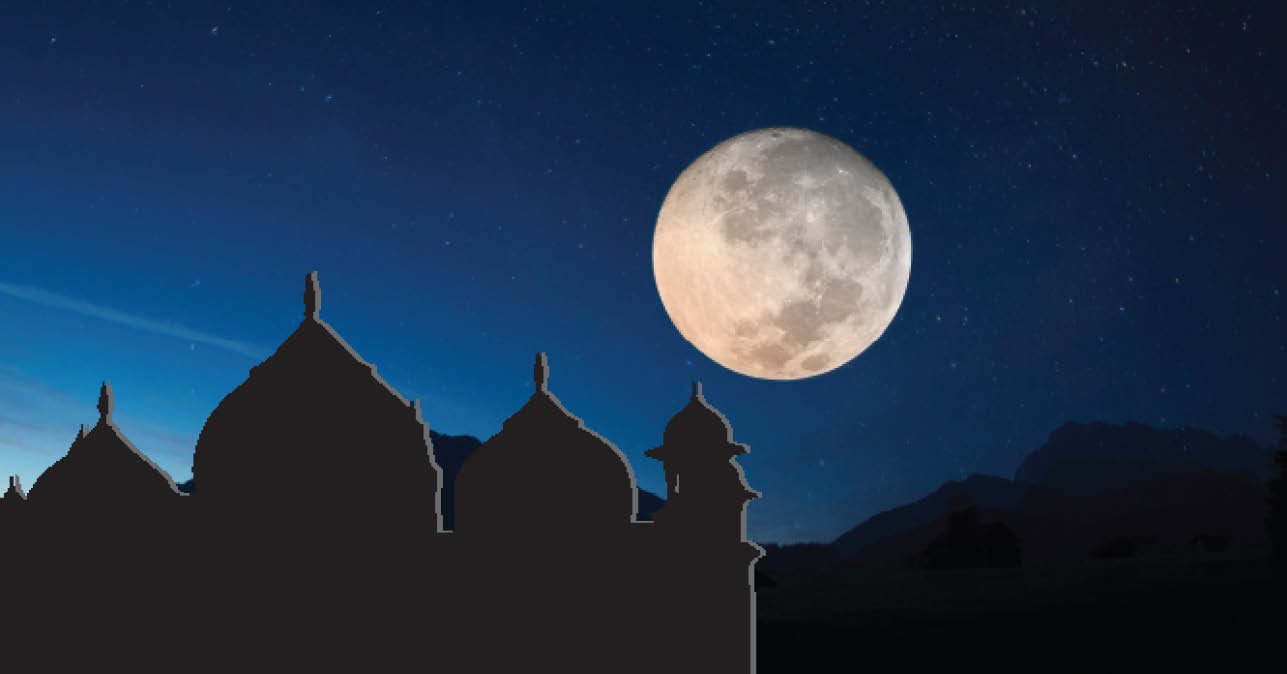Since the crescent of the seventh month in the Islamic lunar calendar for 1441AH appeared over three weeks ago, it was my plan to write on the significance of Rajab. Unfortunately, a different subject matter would always cross my mind each time I sat to write this column; making me to completely forget about the Rajab I had in mind. Even prophets and righteous servants of Allah (SWT) suffered absent-mindedness at a point as happened to Prophet Musa (AS) and his attendant who (as told in Qur’an 17: 60-63) were made by the Satan to fail to remember about their fish when they reached the ‘junction’ of the two seas. Thus, who am I as an ordinary Muslim to escape the antics of the devil who makes man to forget very important matters when and where he shouldn’t? Today being the 26th day of Rajab, we give gratitude to Allah (SWT) that I overcame this forgetfulness before the month would end in the next few days.
The month of Rajab is one of the four months declared in Qur’an 2:194 and Qur’an 2:217 as sacred and within which fighting is prohibited. The other three sacred months are: Muharram, Dhul Qa’dah and Dhul Hajj. Allah (SWT) states in Qur’an 2:217 “When they ask thee concerning fighting in the prohibited month, say: fighting therein is a grave (offence): But graver is it in the sight of Allah to prevent access to the path of Allah, to deny him, to prevent access to the sacred mosque and drive out its members. Tumult and oppression are worse than slaughter….”
The Arabic word “rajaba” literary means “to hold something in awe”. It is stated that this month is named “Rajab” because of the high esteem in which it is held. With only about four days to the end of Rajab, it is not too late to engage in acts of devotion to enable us reap from the blessings of this sacred month. It is reported on the authority of Annas bn Malik that the Prophet (SAW) said, “Whoever offers twenty raka’ats of nafilat prayers after observing the Maghrib obligatory prayer on any day within the month of Rajab shall be protected by Allah (SWT) against the calamities of this world and from punishment in the grave. A worshipper who intends to do this should recite Surat ul-ikhlas after Surat ul-fatiha in each of the twenty raka’ats”. The twenty raka’ats shall have a total of ten pronouncements of the termination of prayer (taslim), which means a taslim would be made after every two raka’ats.
The Prophet (SAW) was reported to have declared that “While Rajab is Allah’s sacred month, Sha‘aban is my sacred month and Ramadan is the holy month for my Ummah”. Abu Hurayrah (RA) reports that the holy month in which the Prophet (SAW) fasted beside Ramadan are the months of Rajab and Sha’aban. Imam Bukhari and Muslim both report that there is a river in Al-Jannah, which is snowier than milk and has a taste that is sweeter than honey. This river is said to be preserved for believers that fast for at least a day in the month of Rajab. Aisha (RA), wife of the Prophet (SAW) reports that the Prophet (SAW) said, “Every soul would be hungry on the Day of Judgment except prophets, their families and believers who fasted in the month of Rajab, Sha ‘aban and Ramadan.
It is also reported that on the Day of Judgment, a voice would call upon those who fasted in Rajab (who are referred to as Ar-Rajabiyyun) to follow a light that will lead them across the spiritual Sirat bridge at the speed of light. As for such people, they would neither be hungry nor thirsty. Allah (SWT) would say to them, “O you who spent your Rajab days in fasting and prostrations! Walk in to your respective residences in Al-Jannah”.
One of the Prophet’s companions, Thaubaan (RA), reports that they were once passing by a cemetery in company of the Prophet (SAW) who suddenly stopped and shed tears. When Thaubaan asked the Prophet (SAW) about the matter, he (SAW) explained that occupants of some of the graves were being punished in their graves. That was why he stopped and prayed to Allah (SWT) to lighten the punishment for them. The Prophet (SAW) then further said “If those people who were being punished in their graves had fasted even for a day and kept at least a night for worship in the month of Rajab, they wouldn’t have experienced punishment in their graves”.
Let us strive to observe voluntary fast even if it were going to be for a day from the few days left before the end of Rajab. Next tomorrow Monday March 23, 2020 would be a good day for this purpose. It is better to be late than never. Rajab is followed by another sacred month, Sha’baan. We therefore have another spiritual opportunity in Sha’baan to make up for the days we probably missed in Rajab. All the six authentic compliers of hadith report on the authority of Aisha (RA) that “The Prophet never fasted for more days in any given month than he did in the month of Sha’baan because he used to fast for the whole of Sha’baan”. In another narration of the same hadith, the Prophet (SAW) was reported not to have fasted for the whole of Sha’baan but for most part of the month.
In Nigeria today, we stand in need of prayers more than ever before. Our challenges which are numerous and complex seem to be defying human solutions. As we were grappling with the spate of kidnappings, banditry, and resurgence of insurgency; coronavirus suddenly emerged at a time when Lassa fever was already another health emergency in the country. COVID-19, which health workers say neither has vaccine nor cure at the moment, is already threatening our economic, social and religious well-being. Coronavirus is even about overtaking other challenges put together as the Friday Muslim congregational prayers and church services are being suspended in parts of the country in the same way insurgency at its height made us to endure.
As we employ voluntary fast to seek Allah’s nearness and pleasure in the remaining days of Rajab as well as in Sha’abaan, let us use part of the time we spend in devoution to seek His intervention in all the challenges confronting us as a nation, community, family and as individuals. The tongue of a believer becomes sharp in prayers each day he observes voluntary fast. Let us use the sharp tongue to remorsefully, repentantly, gratefully, passionately and sincerely call on Allah (SWT) to redeem us from all our collectively and individual challenges. May Allah (SWT) grant us the will, strength and health to observe some days of fast (however few) in Rajab as well in Sha’baan, amin.

 Join Daily Trust WhatsApp Community For Quick Access To News and Happenings Around You.
Join Daily Trust WhatsApp Community For Quick Access To News and Happenings Around You.


